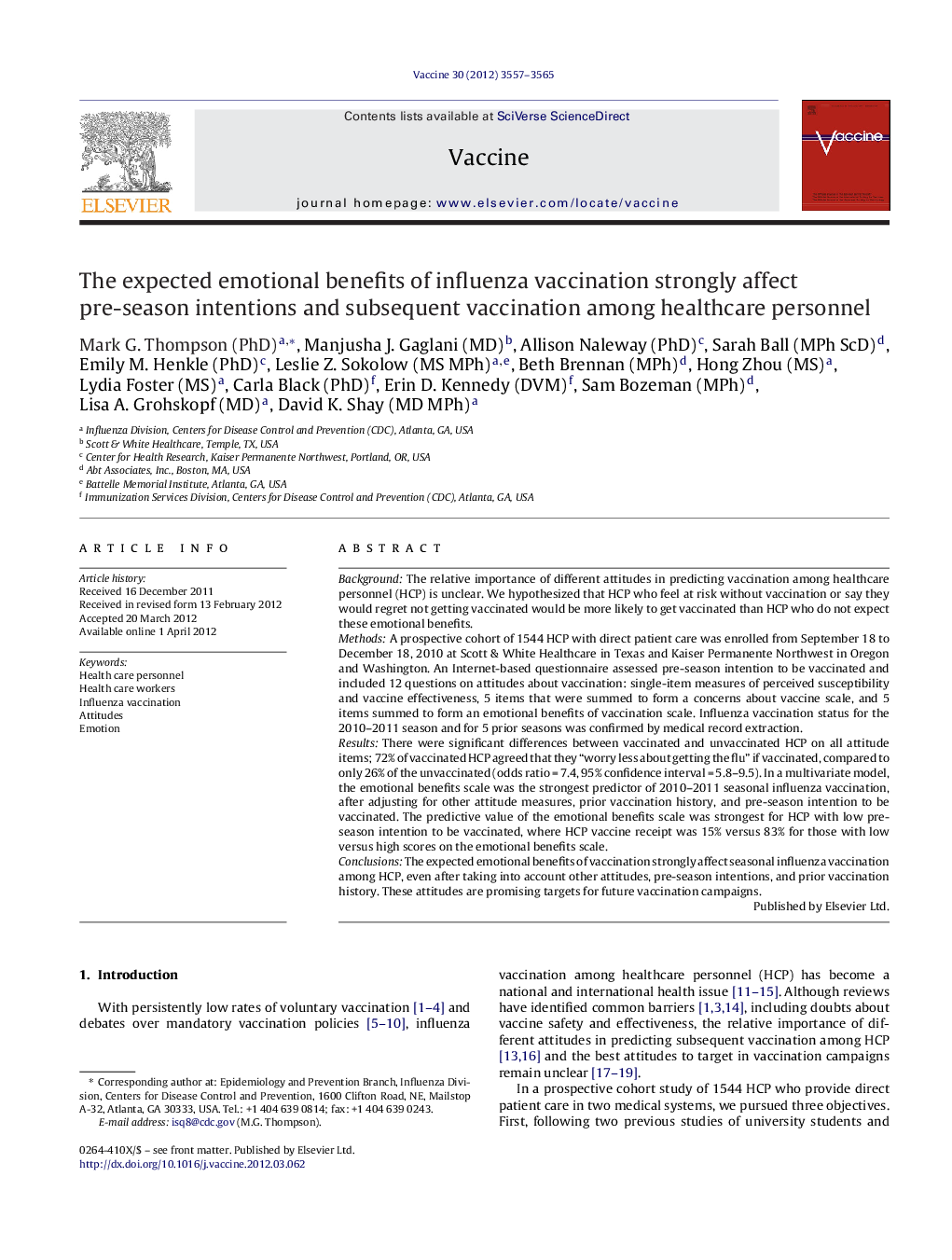| کد مقاله | کد نشریه | سال انتشار | مقاله انگلیسی | نسخه تمام متن |
|---|---|---|---|---|
| 2402615 | 1102827 | 2012 | 9 صفحه PDF | دانلود رایگان |

BackgroundThe relative importance of different attitudes in predicting vaccination among healthcare personnel (HCP) is unclear. We hypothesized that HCP who feel at risk without vaccination or say they would regret not getting vaccinated would be more likely to get vaccinated than HCP who do not expect these emotional benefits.MethodsA prospective cohort of 1544 HCP with direct patient care was enrolled from September 18 to December 18, 2010 at Scott & White Healthcare in Texas and Kaiser Permanente Northwest in Oregon and Washington. An Internet-based questionnaire assessed pre-season intention to be vaccinated and included 12 questions on attitudes about vaccination: single-item measures of perceived susceptibility and vaccine effectiveness, 5 items that were summed to form a concerns about vaccine scale, and 5 items summed to form an emotional benefits of vaccination scale. Influenza vaccination status for the 2010–2011 season and for 5 prior seasons was confirmed by medical record extraction.ResultsThere were significant differences between vaccinated and unvaccinated HCP on all attitude items; 72% of vaccinated HCP agreed that they “worry less about getting the flu” if vaccinated, compared to only 26% of the unvaccinated (odds ratio = 7.4, 95% confidence interval = 5.8–9.5). In a multivariate model, the emotional benefits scale was the strongest predictor of 2010–2011 seasonal influenza vaccination, after adjusting for other attitude measures, prior vaccination history, and pre-season intention to be vaccinated. The predictive value of the emotional benefits scale was strongest for HCP with low pre-season intention to be vaccinated, where HCP vaccine receipt was 15% versus 83% for those with low versus high scores on the emotional benefits scale.ConclusionsThe expected emotional benefits of vaccination strongly affect seasonal influenza vaccination among HCP, even after taking into account other attitudes, pre-season intentions, and prior vaccination history. These attitudes are promising targets for future vaccination campaigns.
► We examined predictors of 2010–2011 seasonal influenza vaccination among healthcare personnel.
► Emotional benefits of vaccination include worrying less about getting influenza if vaccinated.
► Expected emotional benefits are strong predictors of subsequent vaccination.
► Predictive value was noted after adjusting for other attitudes, prior vaccination, and intentions.
► The effect is strongest for personnel ambivalent about getting vaccinated.
Journal: Vaccine - Volume 30, Issue 24, 21 May 2012, Pages 3557–3565